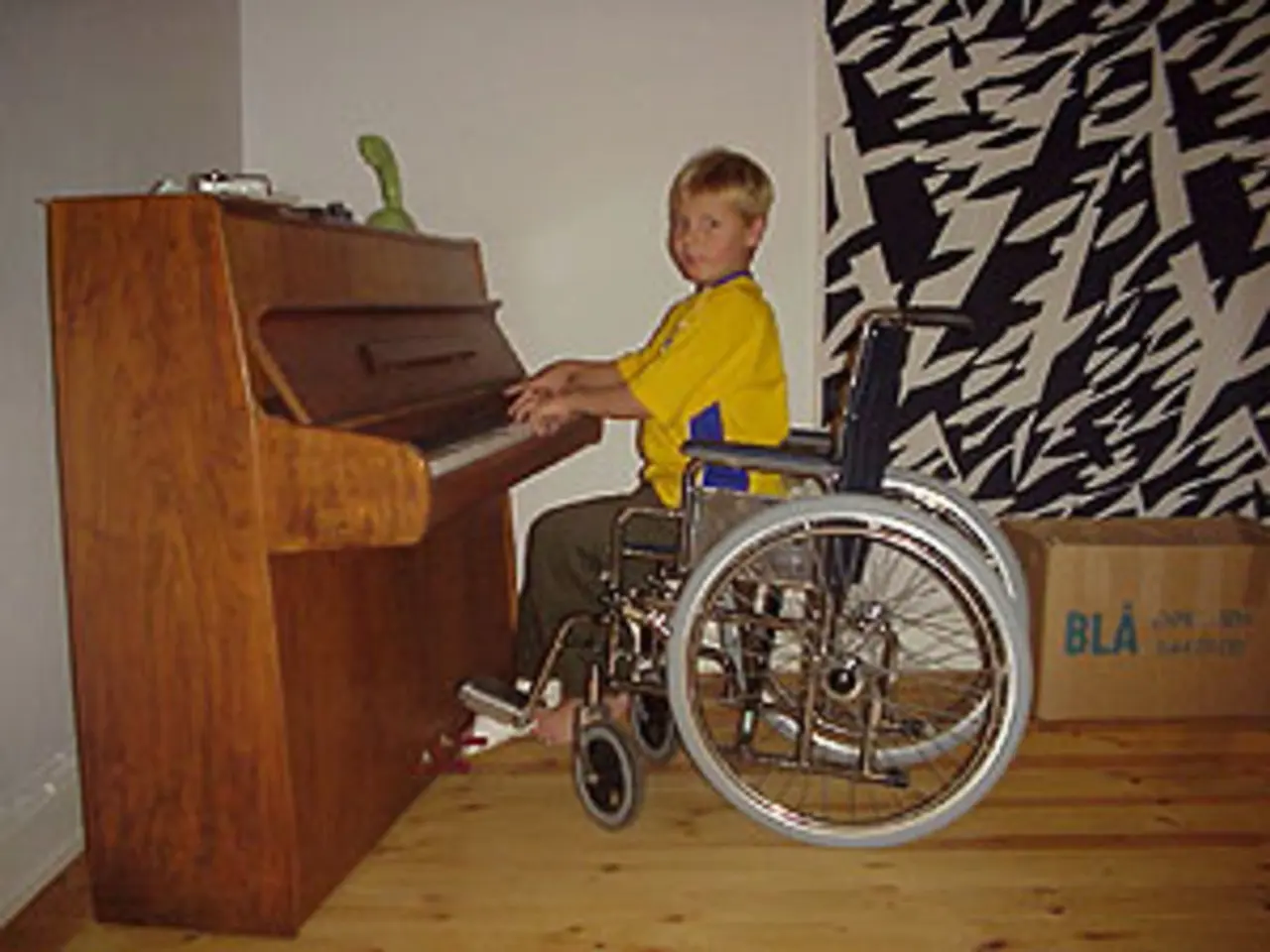Neurodevelopmental Disorder Characterized by Social Communication and Behavioral Challenges
Autism Spectrum Disorder (ASD) is a neurodevelopmental disorder that affects the ways a person interacts, communicates, and behaves. The condition is characterized by varying degrees of differences in communication skills, social interactions, and other patterns of behavior.
There's no single known cause of autism, but having older parents, certain genetic conditions, and having an autistic sibling may increase a person's chance of developing the condition. In the USA, it's estimated that about 1 in 54 children have autism, with the figure having increased over recent years due to greater awareness, improved diagnostic criteria, and possibly an actual rise in cases.
For those who need support, creating the right structure and guidance can be done by talking with your pediatrician or doctor. Possible specialists for ASD assessment and management include developmental pediatricians, child psychologists or psychiatrists, child neurologists, physical therapists, speech therapists, and occupational therapists.
Parents are usually the first to notice developmental differences in their child, and an early diagnosis can set them up for success. ASD symptoms often appear before the age of 3, and the American Academy of Pediatrics recommends that all children be screened for autism at all well-child visits in addition to the standard autism-specific screens at 18 and 24 months of age.
For a doctor to make an autism diagnosis, a number of behaviors will be present. Some signs and behaviors of ASD in children or adults may include trouble relating to others, sensitivity to sensory input, avoiding eye contact, trouble expressing needs, repeating actions, and losing skills they once had.
Diagnosing autism in older children, adolescents, and adults may require additional testing by a pediatrician or primary care doctor. Supportive services, tailored to the individual's wants and needs, are frequently offered after a child receives an autism diagnosis. These services can include therapy to help develop language and communication skills, tools to manage behavior, and social skills.
Autism organizations and resources, such as the Autism Society of America, Autism Self Advocacy Network, Autistic Women & Nonbinary Network, Autism Research Institute, Sesame Street and Autism, and Wrong Planet, can provide additional support and resources. The services offered can focus on specific issues such as learning, language, imitation, attention, motivation, compliance, initiation of social interaction.
It's important to note that there's no single best way to manage autism, as each person's needs are unique. Autism healthcare professionals may use behavioral methods, communication therapy, occupational therapy, physical therapy, and social play to help manage these issues.
Many autistic people don't need much, if any, support to live their lives. However, for those who do, supportive services can continue as long as wanted, and some autistic people may choose to change or stop these services as their needs evolve.
In conclusion, understanding and supporting individuals with autism is crucial. Early diagnosis and appropriate support can greatly improve the quality of life for those affected by ASD. For more information and resources, please consider reaching out to the various organisations dedicated to helping those with autism and their families.








